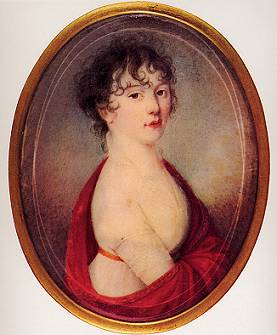If you’ve been keeping score, by 1801 Beethoven had written variations on tunes from three Mozart operas: from “Marriage of Figaro,” WoO 40 (Day 33), from “Don Giovanni,” WoO 28 (Day 50), and from “The Magic Flute,” Opus 66 (Day 78).
Today Beethoven breaks the three-way tie!
In 1801, Emanuel Schikaneder mounted a new production of Mozart’s ever-popular singspiel “The Magic Flute” in Vienna, and later that year Beethoven wrote seven variations for cello and piano on the duet “Bei Männern, welche Liebe fühlen.”
The duet that Beethoven chose for these variations occurs between Pamina and Papageno towards the end of Act I. Papageno has just told Pamina that Tamino is in love with her, and Papageno wants what she has. They sing of the joys and duties of marital bliss.
She sings “Men who feel the call of love / Do not lack a gentle heart.” He sings “Sharing these sweet desires / Is women’s first duty.” And together they sing “We shall rejoice in love; / We live for love alone.”
Beethoven’s seven variations and coda for cello and piano on Mozart’s “Bei Männern” duet mostly stick to the 6/8 time signature of the original, but Beethoven gradually drifts away from Mozart’s tune. “Variation 6, a soulfully embellished variant marked ‘Adagio,’ bears so little resemblance to Mozart’s original as to be entirely Beethoven. Making the theme his own seems to have been Beethoven’s intent here.” (“Beethoven’s Cello,” pp. 89–90)
#Beethoven250 Day 144
Variations on Mozart’s “Bei Männern” for Cello and Piano (WoO 46), 1801
Zurich-born cellist Sayaka Selina and pianist Thomas Hoppe perform at the music school in Berlin where he is on the faculty.
At time 8:04 in this video, do the rhythmic piano taps foreshadow the duet towards the end of “The Magic Flute” when Papageno meets his Papagena, and they are so dumbstruck that they can only sing the first syllables of their names: “Pa–pa–pa. Pa–pa–pa–pa.”? Sounds like it!
On 16 November 1801, a month before his 31st birthday, Beethoven wrote again to his physician friend Franz Wegeler, who he had told about his hearing loss in June. He reports that one doctor had him apply the bark of the Daphne mezereum plant to his arms. “Well, it is an extremely unpleasant treatment, inasmuch as for a few days (until the bark has drawn sufficiently) I am always deprived of the free use of my arms, not to mention the pain I have to suffer. True enough, I cannot deny it, the humming and buzzing is slightly less than it used to be, particularly in my left ear, where my deafness really began. But so far my hearing is certainly not a bit better; and I am inclined to think, although I do not dare to say so definitely, that it is a little weaker.”
Beethoven inquired about other possible treatments: “People talk about miraculous cures by galvanism; what is your opinion? — A medical man told me that in Berlin he saw a deaf and dumb child recover its hearing and a man who had also been deaf for seven years recover his.”
As for his previous social isolation, Beethoven reports some improvements: “I am now leading a slightly more pleasant life, for I am mixing more with my fellow creatures. You would find it hard to believe what an empty, sad life I have had for the last two years. My poor hearing haunted me everywhere like a ghost; and I avoided — all human society. I seemed to be a misanthrope and yet am far from being one. This change has been brought about by a dear charming girl who loves me and whom I love. After two years I am again enjoying a few blissful moments; and for the first time I feel that — marriage might bring me happiness. Unfortunately, she is not of my class — and at the moment — I certainly could not marry — I must still bustle about a good deal.”
This “dear charming girl” was Countess Giulietta Guicciardi, who was then just a week short of her 17th birthday. Beethoven dedicated the Moonlight Sonata to her when it was published in 1802; in November 1803 she married a Count who was also an amateur composer.

Giulietta is the subject of a novel by Patricia Morrisroe entitled The Woman in the Moonlight published in September 2020. She discusses Giulietta and her novel in the New York Times article “The Woman at the Heart of Beethoven’s ‘Moonlight’ Sonata” (May 28, 2020).
#Beethoven250 Day 144
Variations on Mozart’s “Bei Männern” for Cello and Piano (WoO 46), 1801
A social-isolation performance from the home of Romanian musicians Catalina & Karl Huros.
“You will find me as happy as I am fated to be on this earth, not unhappy — no, that I could not bear — I will seize Fate by the throat; it shall certainly not bend and crush me completely.” — Beethoven’s letter to Franz Wegeler, 16 November 1801